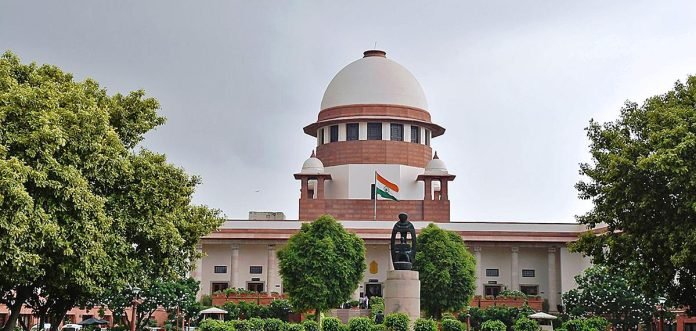NEW DELHI, Dec 12 – The Supreme Court has ruled that mere harassment is not sufficient to convict someone under the offence of abetment of suicide, and there must be clear evidence of direct or indirect incitement to suicide. The ruling came from a bench of Justices Vikram Nath and P.B. Varale, who delivered their verdict on an appeal challenging a Gujarat High Court order. The High Court had earlier refused to discharge a woman’s husband and two in-laws, who were accused of harassing her and driving her to suicide.
The case, registered in 2021, involved charges under sections 498-A (cruelty to a married woman) and 306 (abetment of suicide) of the Indian Penal Code (IPC), with the latter carrying a penalty of up to 10 years in jail and a fine.
Clear Mens Rea Required for Abetment of Suicide
In its December 10 judgment, the bench emphasized that for a conviction under section 306 of the IPC, clear mens rea (intention to cause harm or incite the act) is necessary. The court stated, “Mere harassment, by itself, is not sufficient to find an accused guilty of abetting suicide.” The prosecution must prove that the accused took direct or active steps to incite the victim to take their own life.
The bench pointed out that the presence of mens rea cannot be presumed or inferred. It must be explicitly evident in the actions of the accused. Without clear proof of intent to provoke or contribute to the suicide, the essential element of abetment under the law is not met.
Discharge of Charges for Abetment of Suicide
In this case, the court discharged the husband and two in-laws from the charge of abetment to suicide (section 306 of IPC), although it upheld the charge against them under section 498-A (cruelty). The bench noted that an FIR had been registered by the woman’s father in 2021, accusing the three men of harassment leading to his daughter’s suicide.
The woman, who had been married in 2009, reportedly faced physical and mental harassment, particularly after failing to conceive a child in the first five years of marriage. She was found dead in April 2021, having allegedly committed suicide by hanging. Despite the woman’s long marriage and her father’s complaint, the court found insufficient evidence to link the accused directly to her act of suicide.
Prosecution Must Prove Direct Act of Incitement
The Supreme Court made it clear that, under section 306 of the IPC, the prosecution must establish that the accused had contributed to the victim’s suicide through direct or indirect actions. The court stressed that “concrete proof” of the accused’s actions, closely linked to the time of the incident, is essential to prove that the accused had pushed the victim toward suicide.
The bench remarked, “Mere allegations of harassment are insufficient to establish guilt. There must be evidence of a positive act by the accused that directly or indirectly led to the victim’s decision to commit suicide.”
Lack of Direct Evidence of Harassment
Although the court acknowledged that the woman had faced cruelty, it noted that the accused had not shown any direct intent to incite her to suicide. The court said, “It appears that the appellants did not have the requisite mens rea, and neither did they commit any positive or direct act or omission to instigate or aid in the commission of suicide.”
Additionally, the bench noted that the woman had been married for 12 years before her death, and no formal complaint of harassment had been lodged during this time. While it accepted that this fact didn’t rule out the possibility of cruelty, the court emphasized that the lack of complaints over the years weakened the case for abetment.
Proceeding with Cruelty Charges
While discharging the accused from the charge of abetment of suicide, the Supreme Court upheld the charge under section 498-A of the IPC. The bench directed that the trial under this provision proceed. Section 498-A pertains to subjecting a married woman to cruelty, a serious offense in Indian law.
Conclusion
The Supreme Court’s ruling underscores that while harassment may contribute to a tragic outcome, it is not sufficient to convict someone of abetment to suicide without clear, direct evidence that the accused’s actions directly led to the victim’s death. The judgment reinforces the need for a thorough examination of facts and circumstances, and a clear demonstration of mens rea, when it comes to the sensitive and serious charge of abetment of suicide.

